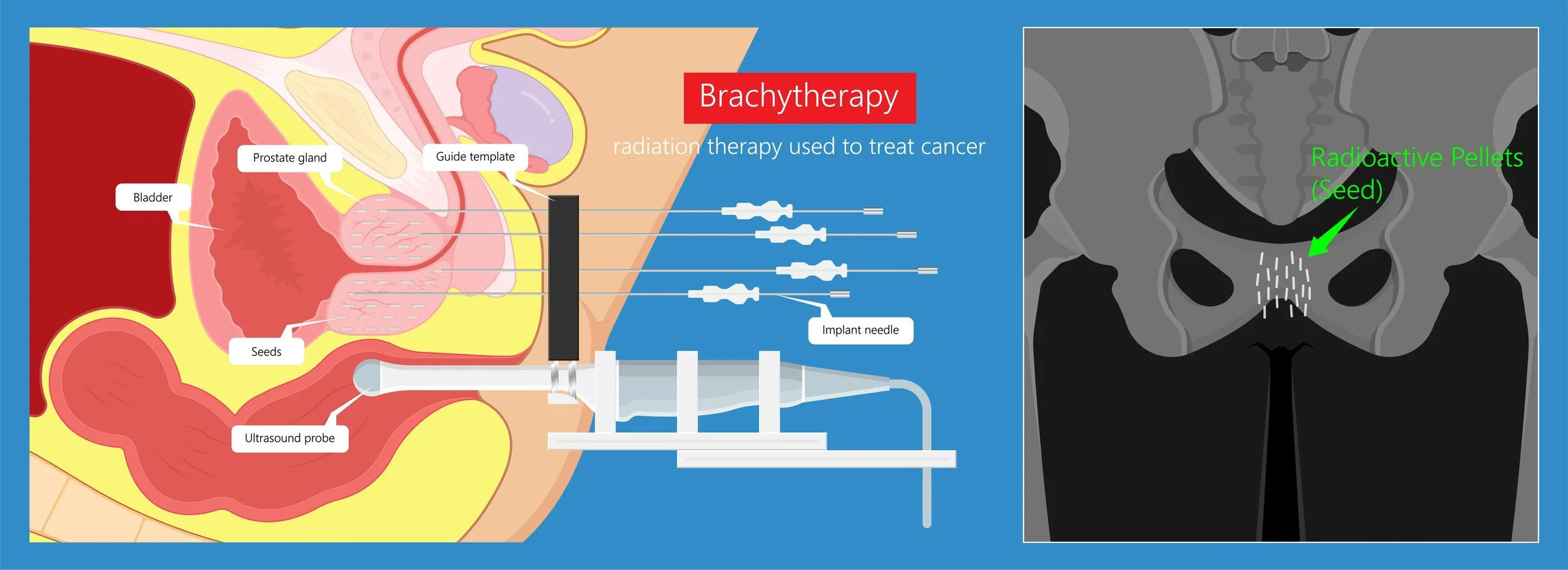Get Protected from Radiotherapy Side Effects
Watch this video to understand how protected your body from Radiotherapy Side Effects
Continue on to the article below if you would rather read than watch a video.
Are you nervous about the side effects of radiation therapy?
Well, Radiotherapy has a long history of showing an ability to kill cancer cells, but is also associated with many damaging side effects. Clinicians offer medications in an attempt to control adverse effects, but they also carry their own risks. However, studies conducted by top cancer institutes over the last decade have shown that high doses of vitamin C can provide a non-toxic method to protect normal cells against the damaging effects of radiation, while also sensitizing the cancer cells enabling the radiation to be more effective. This article looks into why avoiding radiation therapy side effects is so important, and the evidence that demonstrates High Dose Vitamin C can help.
High dose intravenous vitamin C (also called IVC), has been used by Integrative Oncology practitioners for over 50 years, but the mechanisms of action (how it works) have been a mystery for most of that period. Breakthrough research over the last several years has helped clarify how IVC actually kills cancer.
External Beam Treatment
Radiation therapy uses high-energy x-rays or other particles to destroy a variety of cancer cell types. The most common is an external beam treatment that delivers radiation from a machine outside of the body; operators target cancer cells but normal nearby cells are also damaged by the high energy therapy.
Internal Radiation Therapy
Internal radiation therapy is also used, this is called brachytherapy. In this case, radioactive material is placed into the cancer site or surrounding tissues, implants can be permanent or temporary. Because of the risks associated with this treatment, patients undergoing internal radiation therapy are advised to limit contact with children and pregnant people
Radiation Therapy Side Effects
Short Term Side Effects
Fatigue, hair loss, and skin changes are short term side effects that patients who receive radiotherapy may experience. However, additional side effects may occur depending on the treatment site. For example, those receiving radiation to treat cancers in the breast or chest can experience heart complications and lung damage.
Radiation to the pelvis can lead to bladder problems, fertility issues, and affect the ability to have intercourse. Radiation is commonly used to treat brain tumors and head or neck cancers, both of these also carry their own unique set of short term side effect risks.
Long Term Side Effects
The short term side effects should be taken seriously, but unfortunately there are also long term side effects we need to mitigate as well.
There are a variety of “late effects” that are dependent on the treatment location, but the most concerning issue regardless of treatment site is the increased risk of new cancers from the radiation therapy. Recent studies show that one in five cancer survivors will develop a second cancer. Radiation increases the risk of secondary cancers because the high energy treatment can damage DNA and kill healthy cells and tissues. For this reason, radiation oncologists have established lifetime maximums for the amount of radiotherapy that can be applied to each area of the body.
High Dose Vitamin C is a Non-Toxic Treatment
Now, oncologists may prescribe medications like Amifostine to protect normal cells from radiation damage, but they too carry a long list of serious side effects. Top cancer doctors looking for a non-toxic approach to limiting radiation side effects have found great success with high dose vitamin C.
For example, multiple studies carried out by the National Cancer Institute designated comprehensive cancer center at the University of Iowa provide evidence that high doses of vitamin C protect normal cells from the damaging effects of radiation.
Here are three major findings:
Make it stand out
Dr. Joseph Cullen (the world leading clinical researcher of high dose vitamin C cancer treatment) published a study in December of 2018 that stated
“Pharmacologic Ascorbate (high dose vitamin C) Reduces Radiation-Induced Normal Tissue Toxicity and Enhances Tumor Radiosensitization”.
Subsequently, Dr. Joshua Schoenfeld, now at Sloan Kettering Cancer Center, documented in a January 2019 article that high dose vitamin C provides
“a Means of Sen
sitizing Cancer Cells to Radio-Chemotherapy While Protecting Normal Tissue”.
And finally, Dr. Bryan Allen and his team published another study in November of 2019 in which they saw evidence that supports the hypothesis that
“pharmacologic ascorbate acts as an antioxidant systemically and may protect against radiation induced toxicity”.
Now, in addition to having the ability to protect normal cells from radiation treatment, top cancer doctors have produced evidence that high dose vitamin C can damage and kill cancer cells, which when combined with radiation improves the effectiveness of the treatment.
Dr. Lewis Cantley of the Harvard Medical School noted in an article to the National Cancer Institute that
“vitamin C showed synergistic effects when combined with radiation”.
In this context “synergistic” means radiation treatment is more effective with high dose vitamin C, than without it.
In summary, radiation treatment carries risks of severe short term side effects that can reduce your ability to fight back against the disease, while also increasing the risk of new cancers. Top cancer doctors provide evidence that high dose vitamin C represents a non-toxic treatment that can protect normal cells from radiation damage while also selectively attacking cancer cells.
Medical Advice Disclaimer:The information, including but not limited to, text, graphics, images and other material contained on this website are for information purposes only and was based on the latest research accessible to the author at the time of publication. No material on this site is intended to be a substitute for professional medical advice, diagnosis or treatment. Always seek the advice of your physician or other qualified health care provider with any questions you may have regarding a medical condition or treatment and before undertaking a new healthcare regiment, and never disregard professional medical advice or delay in seeking it because of something you have read on this website.









